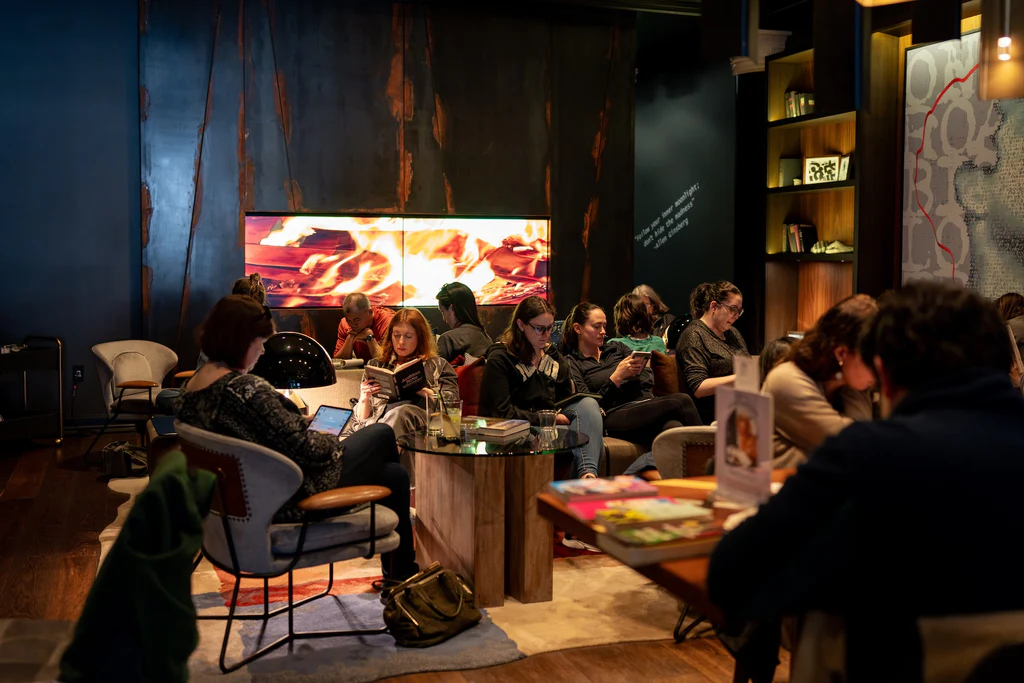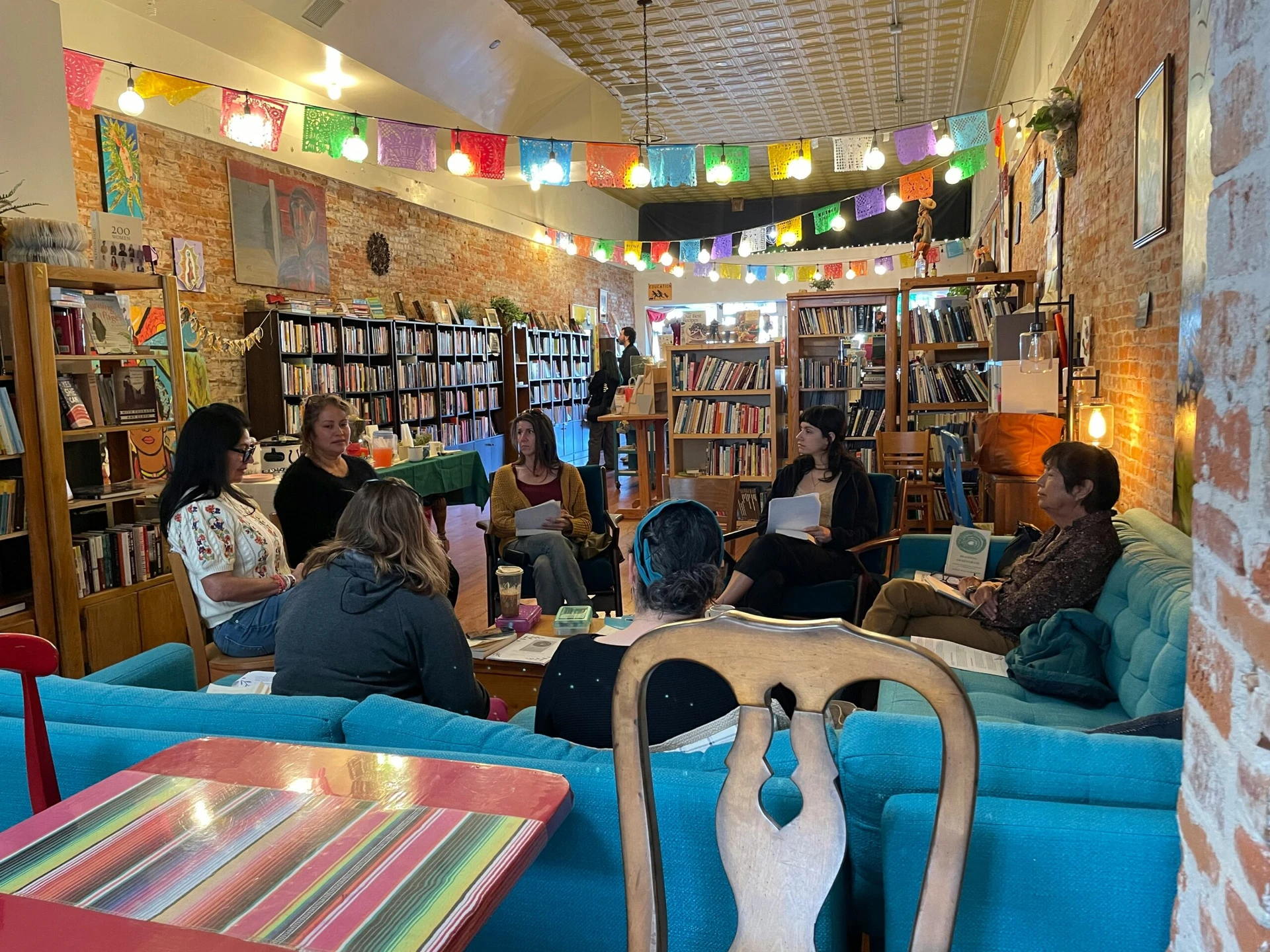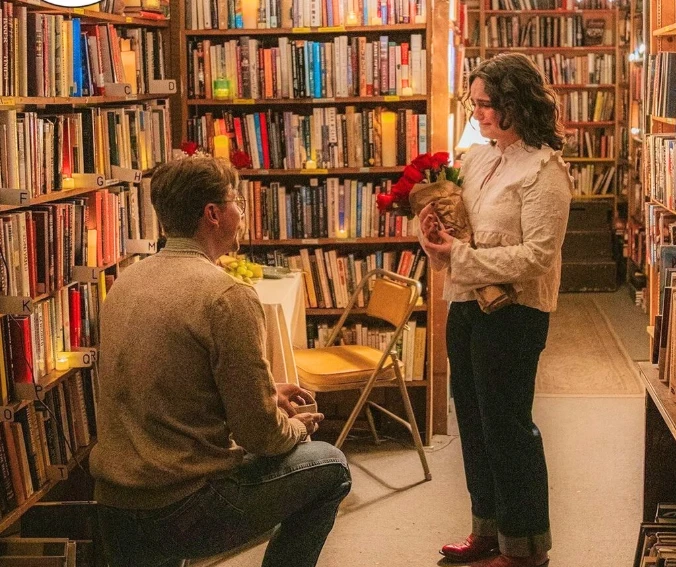Book clubs are back and cooler than ever. Discover how Gen Z and Millennials are turning reading into the ultimate social scene.
It looks like book clubs are having a renaissance. They are no longer confined to sitting rooms with wine and crackers; these gatherings have evolved into dynamic social hubs for Gen Z and Millennials. But what’s caused this cultural shift, and does it mean book clubs are the new “it” venue?
From Dusty Shelves to Vibrant Get-Togethers
In decades past, the typical book club evoked images of middle-aged women in living rooms, discussing ‘serious’ literature. But today’s book club scene is anything but typical. There has been a revival of romance reading-focused gatherings held in bustling bookstores and cafés, smiling faces and excited chatter filling the rooms just as much as the smell of freshly roasted coffee.

Platforms like Eventbrite report that book club events in the U.S. increased by 24% in 2023 compared with the previous year, and these really aren’t your grandmother’s meetups. They’re completely open, creative, and community-based.

With something on offer for everyone, from silent book clubs where participants read quietly together in cafés and parks with no pressure to discuss, to genre-specific groups like the many romance clubs out there, it’s no wonder book clubs are booming. There are even multi-activity clubs like reading and running groups, craft nights and wine and reading events!
Post‑Pandemic Thirst for Authentic Connection
Why now? The pandemic fortified online fatigue and craving for genuine human contact. Gen Z and Millennials, despite being prolific online, are seeking for meaningful, real-world ties. There are reports that many in the younger generation feel lonely, with one-third saying they don’t know how to make friends, and 35% feel increasingly isolated than ever.

Gen Z, especially, is “turning the page” on typical book clubs, motivated by the desire to bring people together and prioritize mental wellness. This sense of safe, affordable, and engaging monthly connection is resonating.
This socio-emotional void explains why book clubs are surging. They offer structured yet flexible gatherings with minimal barriers; you just come, read, connect!
Powered by Social Media
Another thing? This book club resurgence is powered by online visibility and social media, at least in part. Many of the people who work to create these spaces end up emerging as micro-influencers just from creating such needed and appreciated authentic offline spaces.
Take #BookTok, for example, has amassed over 220 billion views on TikTok alone. These online communities have been introducing new people to reading and introducing readers to new books that they may never have otherwise found. By doing so, they spark worldwide conversation, and even boost indie bookstores and print sales!

So much so that the publishing world is actually experiencing steady growth: despite a 3% dip in 2023, U.S. print sales remain 10% higher than pre-pandemic levels, and adult fiction has grown continuously for five years.
It’s not just BookTok, though. Celebrities sharing books have also amplified this new trend, with people like Dua Lipa, Emma Watson, and even Reese Witherspoon drawing readers’ attention on social media by sharing their own book choices.
Community and Identity
Book clubs offer more than reading; they foster belonging, identity, and even connection. There are options for everyone, with niche communities starting their own book clubs in most major towns.

Queer book clubs, for example, have become 82% more popular in the last few years. Environmental reading groups have even arisen!
But it’s not just friendships and communities that have been forming. A whole load of young people have reported romantic interests within their groups, and have even said they prefer book clubs to conventional dating apps.

How does that work? Well, books spark deep discussion, and book clubs provide a more reflective, slower, empathetic space. The spaces foster vulnerability and bonding in ways apps cannot.
‘It’ Now, What Next?
So if book clubs are the new ‘it’ club, what happens next? They’ve already got cultural influence, they’ve got vibrancy and versatility, and they mean a lot to those who attend them, so should we expect to just see them continue?
Well, it looks likely.

Cafés and bookstores are already offering themed evenings. Book festivals have become more popular. These events are helping to boost the economy and serve the public, fueling indie bookstores, driving literacy, and promoting diverse authors and book experts in a way that has never been done before.
Book clubs aren’t new. Sure, their popularity is on the rise, but they’ve been around as long as we can all remember. But with this surge in appreciation for them, it seems like they’re finally adapting. Evolving to meet the needs of the 21st-century reader — and it seems like the evolution isn’t stopping anytime soon.
How Do You Join A Book Club?
Thinking about taking the plunge, but unsure where to start? Well, there are a few ways to find book clubs near you.
First of all, check out your local indie stores. Bookstores often run all sorts of bookish events, and they’re usually a great first port of call.
If there’s nothing there, check your area’s local Facebook group. You’ll often find book clubs and all sorts of other local community events there.
And if you’re still coming up short, websites like Eventbrite are prime book club-scouting spaces. Bigger events and those with necessary RSVPs or tickets will usually be advertised on there.
Join our community of 1.5M readers
Like this story? You'll love our free weekly magazine.








